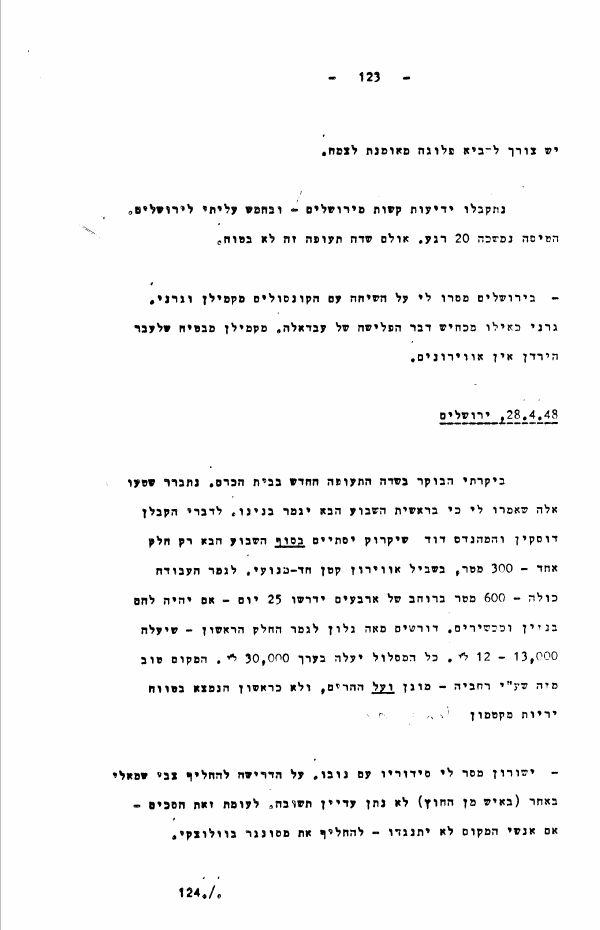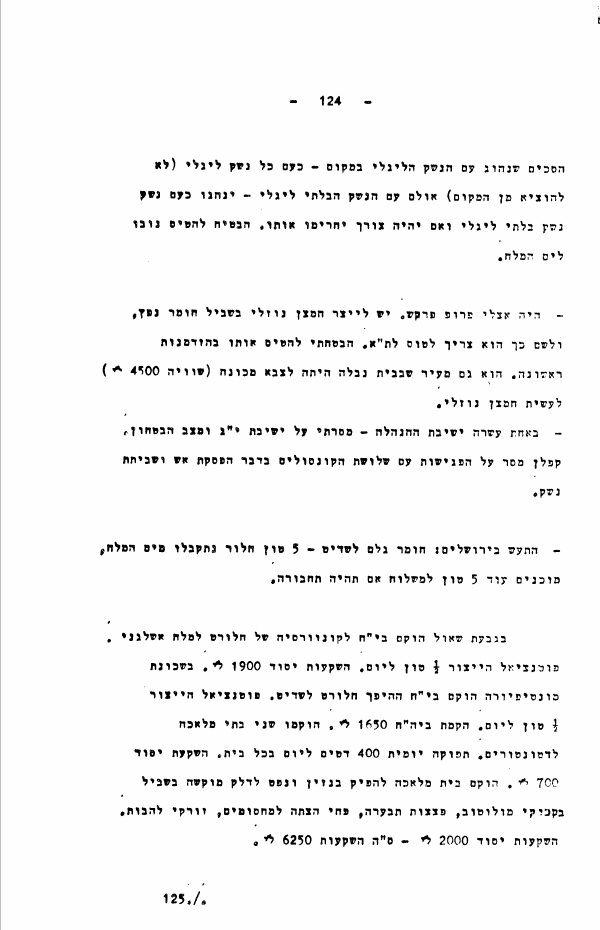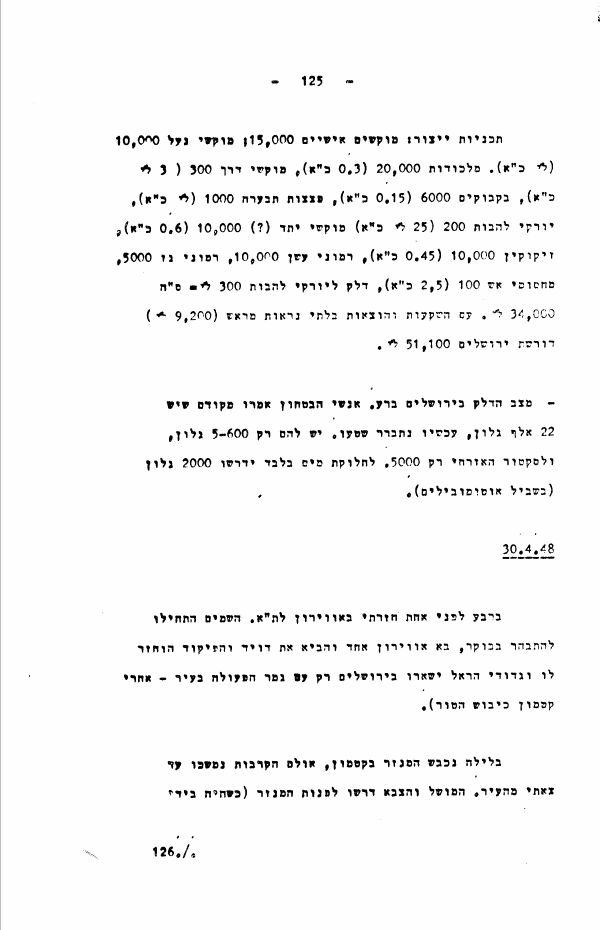1
of
Places:
Dead Sea
Jerusalem
The use of the photograph is subject to the Copyright Law, 2007
28.04.1948
224010
Jerusalem April 28, 1948 This morning I visited the new airfield in Bet Hakerem [between Bet Hakerem and Giv’at Shaul]. It turns out that those who told me that its construction would be finished by the beginning of next week were wrong. According to the contractor, [Shimon] Diskin, and the engineer, David Schickler, only one part will be done by the end of next week—300 meters, [enough] for a small single-engine airplane. To finish the whole job—600 meters, four meters wide, it’ll take 25 days—if they have gasoline and machinery. They want a hundred gallons to finish the first part—it’ll cost 12–13 thousand P£. The whole runway will cost around P£ 30,000. It’s a better place than the one next to Rehavia—protected and on the hills, not like the first one, which is in gunfire range from Katamon and in a hole [a valley]. - Yeshurun [Schiff] told me about his arrangement with Novomeysky. He hasn’t yet answered about [Novomeysky’s] demand to replace Zvi Smali with someone else (from the outside). However, he agreed—if the local people won’t object—to replace Messenger [the manager of works in the north) with Wolocki [an engineer at the plant in Sdom]. He agreed to treat the legal weapons there as he would with all legal weapons (not to remove them from the location) but they’ll treat the illegal weapons like illegal weapons, and if necessary they’ll confiscate them. He promised to fly Novo to the Dead Sea [travel by road has already been blocked]. - Professor Laszlo [Ledislaus] Farkash [of the Hebrew University] visited me: liquid oxygen should be produced for explosives, and for that purpose he has to fly to Tel Aviv. I promised to fly him [there] at first opportunity. He also commented that at Bet Nabala the army had a machine [worth P£ 4,500) to make liquid oxygen. - At 11:00 a meeting of the [Jewish Agency] Executive: I reported on the meeting of the Thirteen and the security situation. Kaplan reported on the meetings with the three consuls concerning a cease-fire and an armistice. - Ta’as [home manufacture of weapons] in Jerusalem: raw materials for cheddite—5 tons of chlorate—were received from the Dead Sea. Five tons more are ready for shipment, if transport will be available. In Giv’at Shaul, a factory for conversion of chlorate into potassium chloride. Potential output: ½ a ton per day. Basic investment: P£ 1,900. In the Montefiore quarter, a plant that turns chlorate into cheddite has been set up. Potential output: ½ a ton per day. Cost of building the factory: P£ 1,650. Two detonator workshops have been set up. Daily output: 400 detonators at each shop. Basic investment: P£ 700. A workshop that turns gasoline and kerosene into solid fuel for Molotov cocktails, firebombs, flame fougasses for checkpoints, [and] flamethrowers has been established. Basic investment: P£ 2,000—total investments P£ 6,250. Production program: personal mines—P£ 15,000; 10,000 landmines (P£ 1.60 apiece), 20,000 traps (0.3 apiece), 300 pressure mines (P£ 3 apiece), 6,000 bottles (0.16 apiece), 1,000 firebombs (P£ 1 apiece), 200 flamethrowers (P£ 25 apiece), 10,000 [antipersonnel] spike mines (?) (0.6 apiece), 10,000 flares (0.45 apiece), 10,000 smoke grenades, 5,000 [tear]gas grenades, 100 flame barriers (2.5 apiece), fuel for flamethrowers P£ 300—total P£ 34,000. With investments and unforeseen expenses (PL 9,200), Jerusalem requests P£ 51,100. - The fuel situation in Jerusalem is dire. Before, the defense people said they had 22,000 gallons; now it turns out that they were wrong. They have only 5,600 gallons and the civilian sector has only 5,000. It’ll take 2,000 gallons just to distribute water (for the [delivery] vehicles). [April 29: no diary entry. Ben-Gurion spent the day in Jerusalem.]











